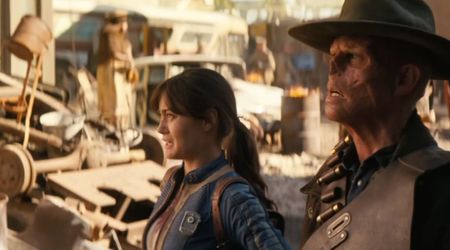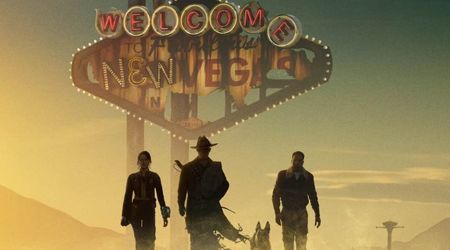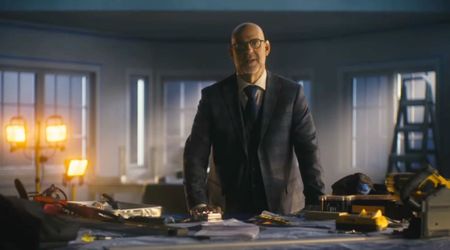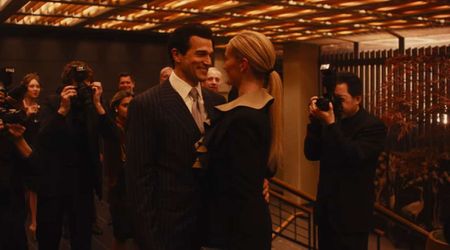'Enslaved' Episode 3: Samuel L Jackson follows trail of sugar, money and death in South America and Europe

It is highly unlikely that you will see the ordinary cup of joe or the sugar you stir in it with the same eyes after you watch Episode 3 of docuseries 'Enslaved'. This is a well-rounded episode, which works as a stand-alone episode too - in case you have missed the previous two installments. This is by far the most gripping episode to have aired till date, making up for the slack in Episode 2. While there is some literature and documentation around the slave trade in the US that makes its past contours of brutality known in the present day, the tragedy in the continent below, in South America, is far less publicized and known. Episode 3 takes up the narrative of slavery in Brazil and Suriname and the fate of the slaves who reached the sugar plantations there and also those who didn't.
The other prong of the story points to Europe and looks at how the money made off the trade in sugar and other precious commodities like coffee and cacao produced using slave labor fuelled the growth of cities like Lagos in Portugal, where the African slave trade took root in Europe, and maritime trade town like Bristol in the UK.
What is striking, as we shift between the narratives in these two sets of locations, is how the slave trade is memorialized. Lagos, Portugal is where the first slaves were brought to Europe for a thriving slave market in the city square. Nearby is the grave where some of these slaves were cremated, some still bound hand and foot, others still clutching their children to their breasts. But you wouldn't know that since the gravesite and its memory has been papered over by a minigolf course. All that remains are the photographs taken during the gravesite dig, when the slave cemetery was first discovered.

Brazil, on the other hand, has what can be called the Black Holocaust museum at the site where the bodies of approximately thirty thousand Africans (called 'new Blacks' since they had just stepped off boats) were thrown in a makeshift cemetery and burnt along with the garbage if they died right after they got off the boat. The excavated bones are still on view, reminding people of the horrors visited on the slaves and of a time when half the population in the country were enslaved Africans.
The ones who died as soon as they stepped off the boats were lucky in a sense. The ones who survived had to help build the canals that would transport them and commodities to and from the plantations. At the plantations, they worked 18 hours a day, seven days a week in back-breaking labor that often disoriented them, especially since they were whipped for the slightest mistake. So when they would feed the cane pressing machines with sugar canes stalks, their hands could get caught in them. But the machines never stopped working. Instead, an overseer would stand close by with a machete to chop of the trapped hand rather than shut down the machine. So the sugar produced was literally tinged with the blood of the slaves. Life expectancy was remarkably short - most survived at most eight years on these plantations, under such gruesome conditions.
We see, both in Lagos, and later in London and Bristol, the goods and money that flowed into Europe because of this labor fuelled their growth. But there seems to be a sort of amnesia about what fuelled the growth and the crimes against humanity committed by their "favored sons". There are statues all over Lagos of Henry the Navigator, a 15th century Portuguese prince, who bankrolled the exploration of the west coast of Africa and later the slave trade.
Similarly, in Bristol, you can't turn your head without seeing the name "Colston" on buildings, streets, and wharfs, referring to Edward Colston, the English merchant who was involved in the Atlantic slave trade. Colston also has his statue up in the city as a "philanthropist" and "son of the city" responsible for Bristol's prosperity through his trade and charitable works. This sort of memorializing is done blithely with no sense of history or acknowledgment of his crimes. Then, there is London's first coffee house, which became the center of information and deal-making for the slave trade, and which is covered in a patina of glorious history without any mention of the part it played in the slave trade.
A much accurate history is preserved by the slaves who escaped from sinking ships in the Marooned Islands of Suriname, and who became freedom fighters, rescuing their own or killing plantation owners. The dive in this episode doesn't give us much because of the muddy waters, but we do get to hear how 664 Africans suffocated or drowned when the Leusden, a Dutch West India Company slave ship, ran into rough weather. Instead of letting the slaves go, the captain got the crew to nail down the hatches so that they couldn't escape and later claimed insurance for the "lost cargo" aka the slaves. They were never punished for the murder of hundreds of human beings.
This was common practice, according to historian Leo Balai, and this mass grave at sea is never talked about. But a similar case led to the unraveling of the slave trade when an insurance claim made by a ship that forcibly threw Africans off the ship was denied by the court. The judge's decision might have been influenced by the fact that he had a Black girl, Dido Elizabeth Belle, living in his house; she was the daughter of his nephew and whom he subsequently treated at par with his own daughter, Lady Elizabeth Murray, when it came to his estate's will. As soon as money could no longer be made from the "lost cargo" of slaves, the economics of the trans-Atlantic slave trade no longer made sense.
'Enslaved' Episode 3 aired on September 28. The next episode will air on October 5 at 10 pm on Epix.










